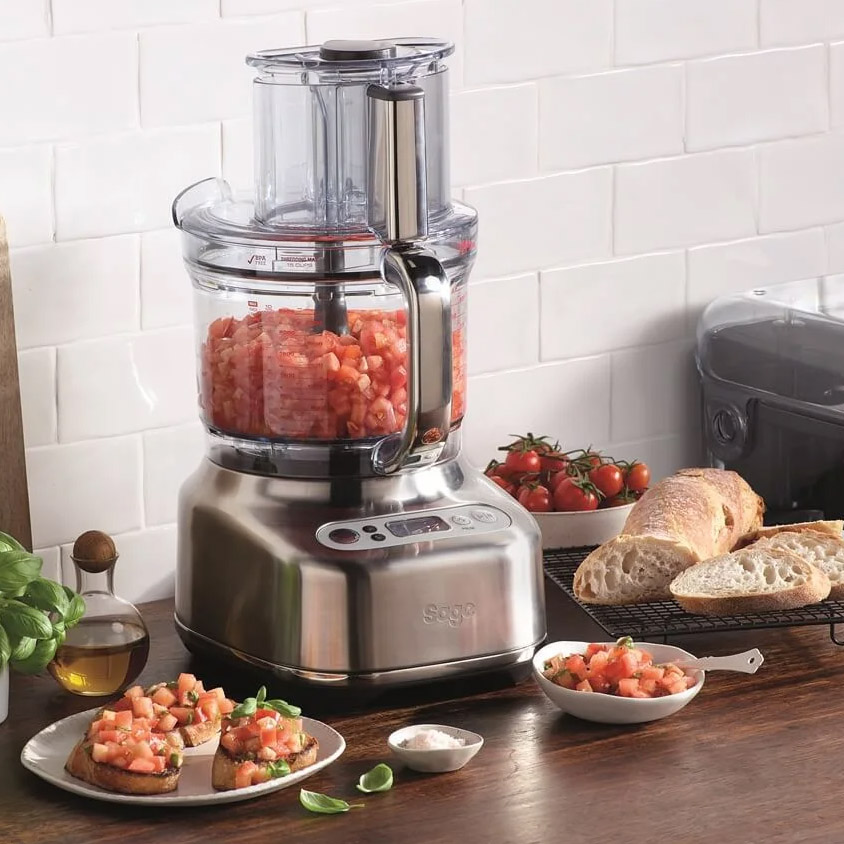
Sage is a premium brand. That means it goes without saying that most Sage appliances are on the pricier side. And the Sage Paradice 16 is no exception, it’ll set you back in excess of £550. Price alone will be reason enough for a lot of people to stop reading and look for a different pick of the best food processors. But, if you’re looking for the best, this could be it.
This isn’t just a bog standard food processor, it comes with such an array of accessories, that there are two big storage cases to house them all. There’s no denying it’ll be overkill for a lot of people, but if you want a machine that can take care of dicing, grating, slicing, chopping, and even cutting chips, you’ll welcome this versatile machine with open arms.
I managed to borrow one from the folks at UK Juicers, where the Sage Paradice retails for £579.00. And let me tell you, it’s pretty impressive. It’ll be a real time saver in busy households, or for people who entertain a lot. But in my small cottage kitchen cooking for two it wouldn’t fulfil its potential.
Sage Paradice 16 food processor specs
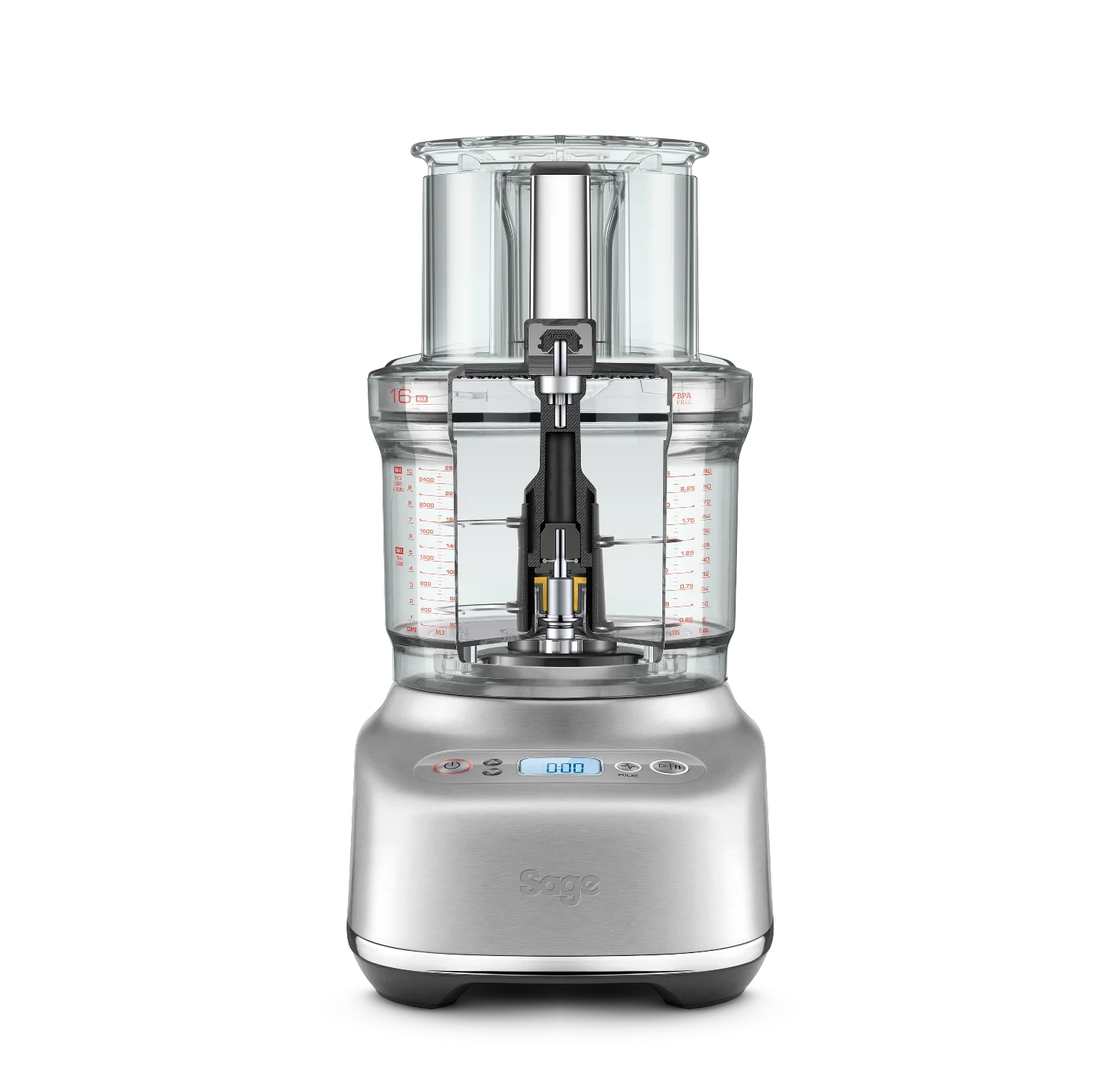
- Capacity: 3.6 litre
- Power:900W
- Main unit size: 45 x 28.7 x 23.4cm
- Storage box size (x 2): 21.1 x 32 x 27.7cm
- Accessories included: Quad blade, mini blade, 8mm dicing disc, 16mm dicing disc, potato peeler, adjustable slicing disc, reversible shredder disc, dough blade, french fry disc, cleaning brush, spatula.
Unboxing and first impressions of the Sage Paradice 16
It arrived in a huge box with a warning that it’s a 25kg 2 person lift. So, needless to say, I unpacked it right next to the front door. The majority of the packaging was cardboard, so it’s all very easy to recycle. There are also plastic bags surrounding each item in the box, but thankfully no polystyrene.
Luckily there are just four main parts to remove from the box, which made life easier. There’s the main food processor base, the blending bowl comes out with its lid and pushers attached, then two chunky accessory storage cases. Other than that, there’s just a manual, spatula and cleaning brush.
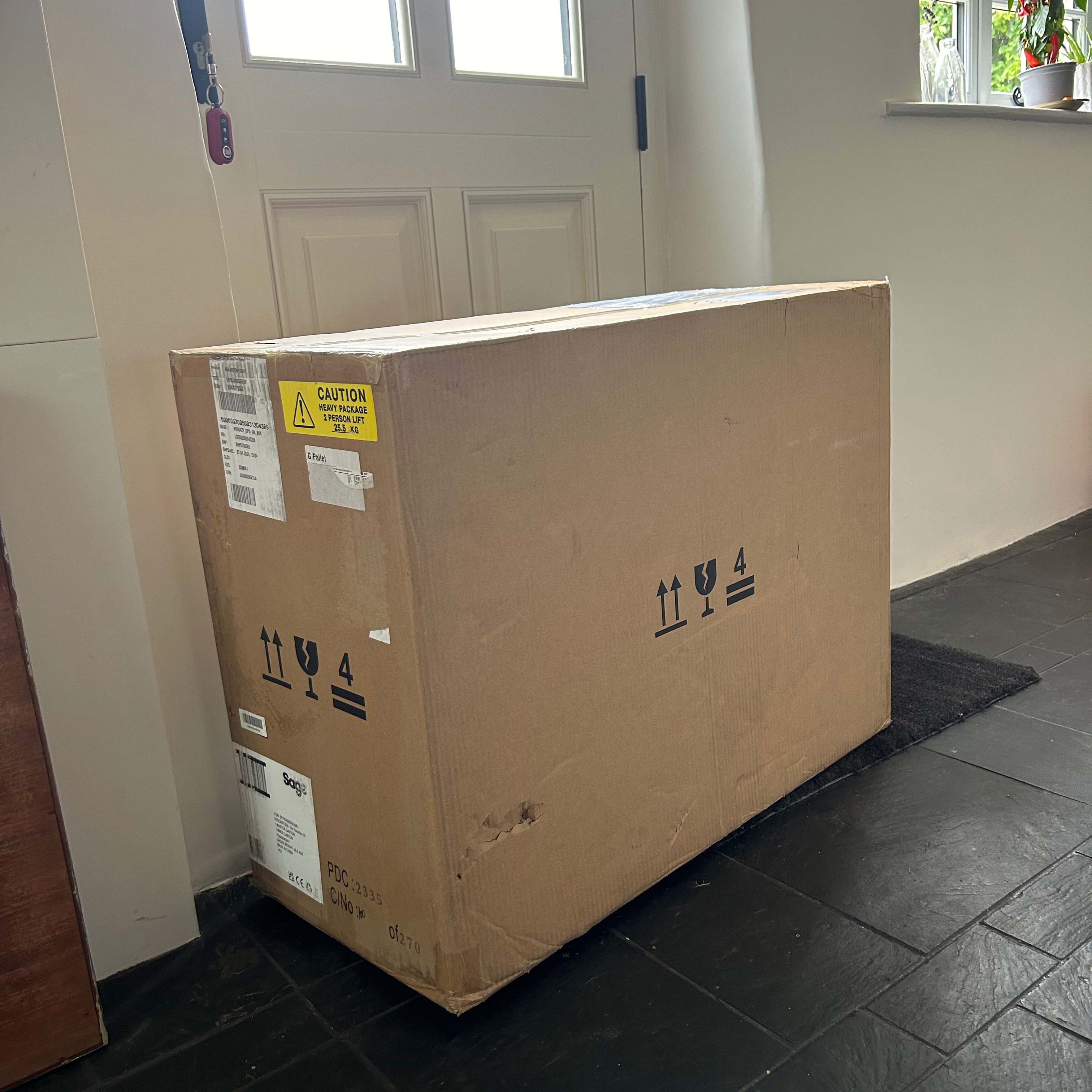
I must admit, it’s a lot of stuff and it felt quite overwhelming in my small cottage kitchen. Immediately I’m thinking this is something for people with big kitchens and lots of storage space.
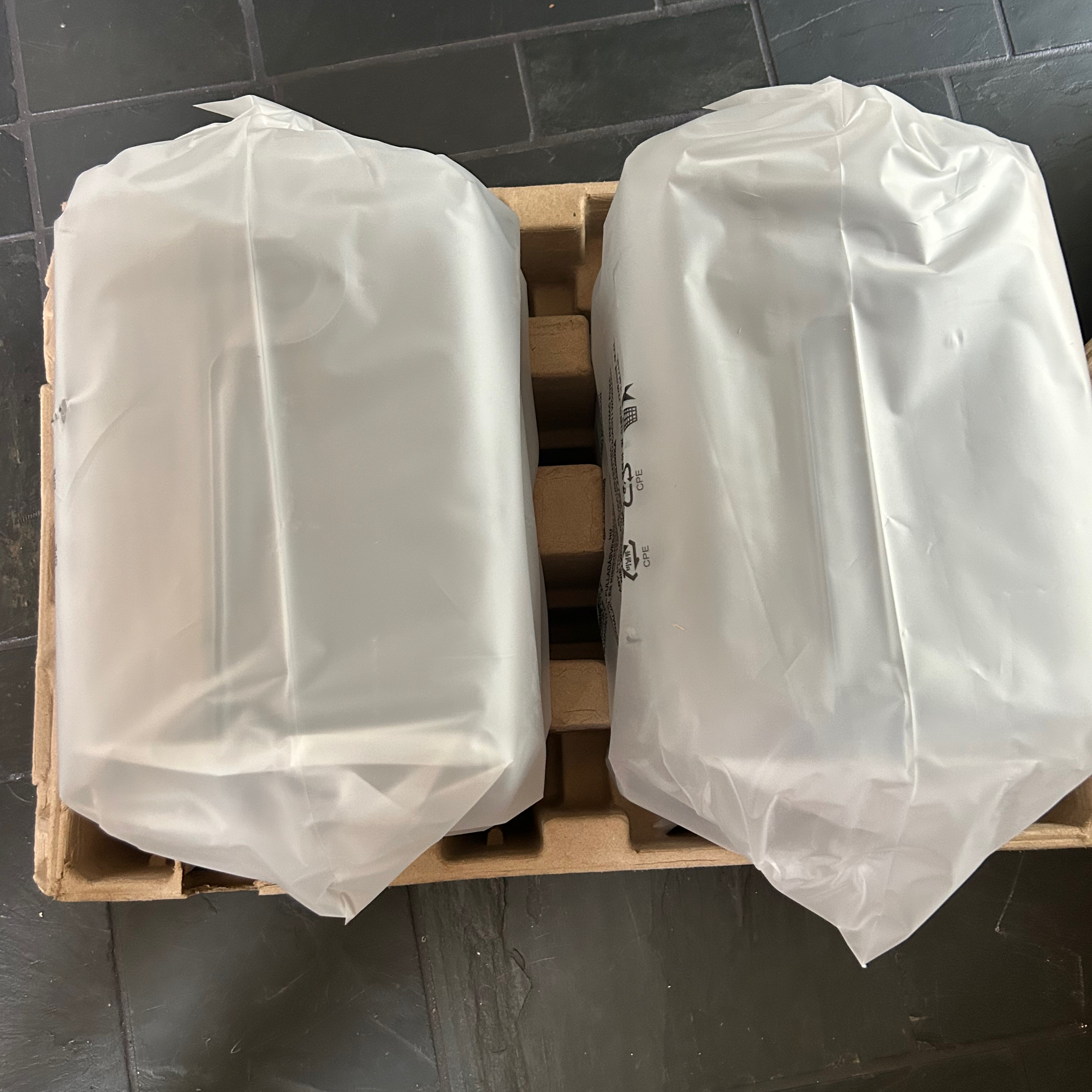
One of the accessory boxes contains all the parts necessary for dicing, which feels like a huge box of stuff simply to create 8mm dice and 16mm dice. The second box contains all the other accessories, which includes the slicing, grating, and french fries discs, a potato peeler, the main quad blade, dough blade, and mini blade.
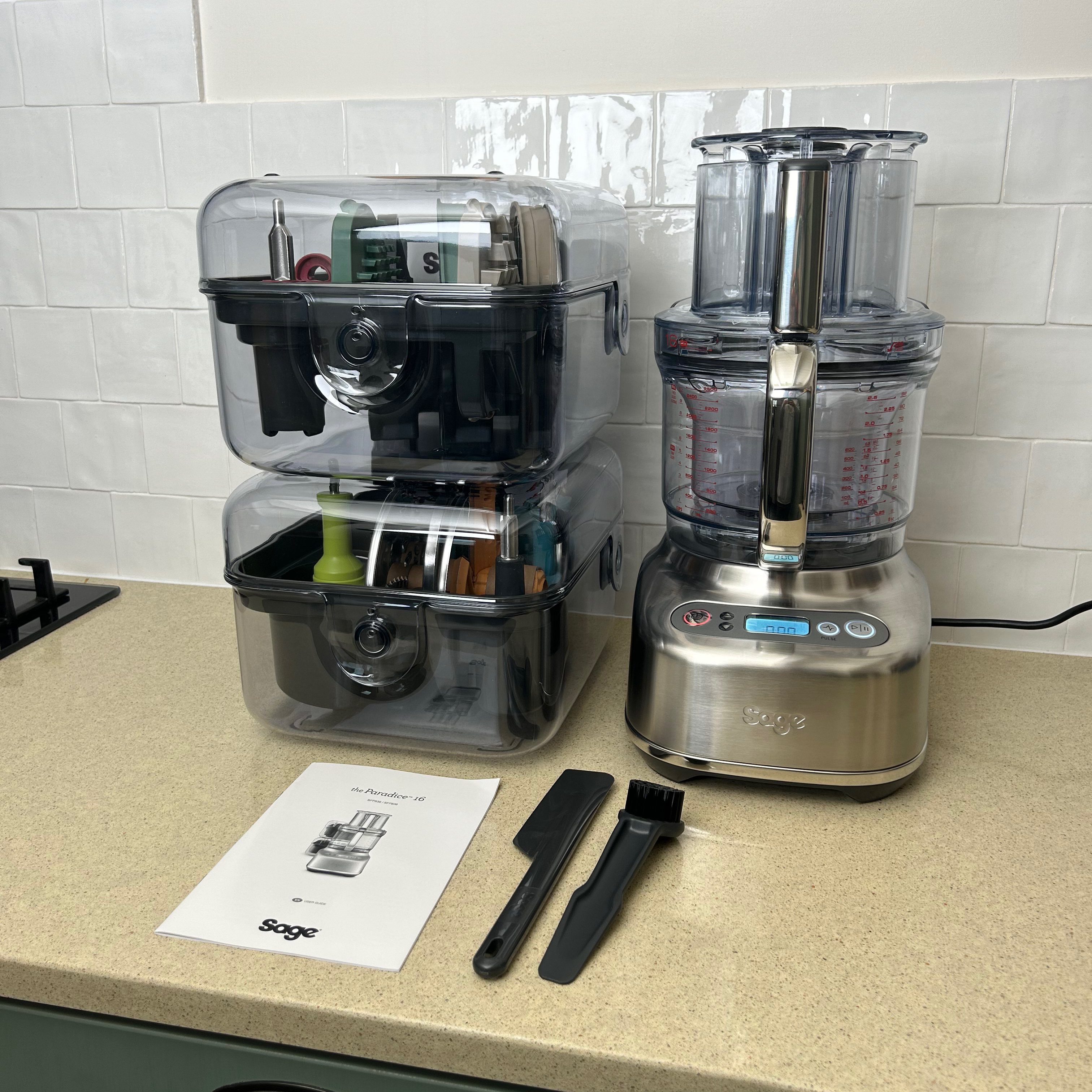
Everything feels really high quality and well made, which is obviously what you’d hope for when you spend in excess of £550 on a food processor. Interestingly though, there are no speeds to choose from. Just a power button, pulse button, and a play/pause button.
On the main control panel you can set a timer using the up and down arrows beside the screen, but that’s all. It’s a very uncomplicated set of controls, which I’m grateful for given the daunting number of accessories I need to get to grips with.
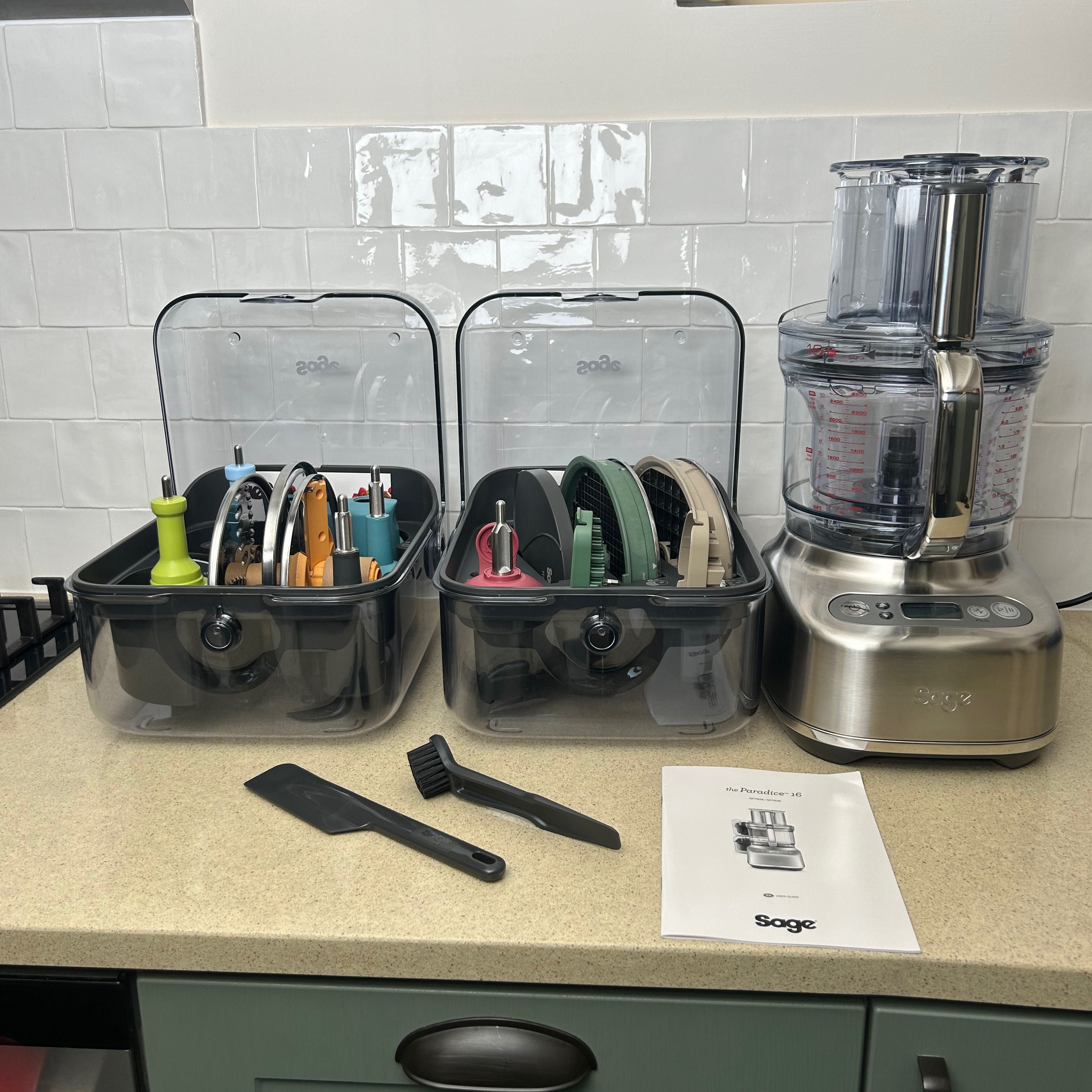
As I started to explore the accessories a bit more, I noticed there’s some colour coding to help simplify assembly. But also some of the parts have helpful text prompts on them to remind you which way up they should go. And after a few minutes, it's all starting to look a little less daunting.
What is it like to use?
Peeler
I don’t love peeling potatoes, and often don’t bother unless it’s really necessary. So I was excited to try this peeling accessory. It works by tumbling 6-7 potatoes which removes the skin. So the instructions say it’s most effective with round potatoes approximately 7cm in diameter.
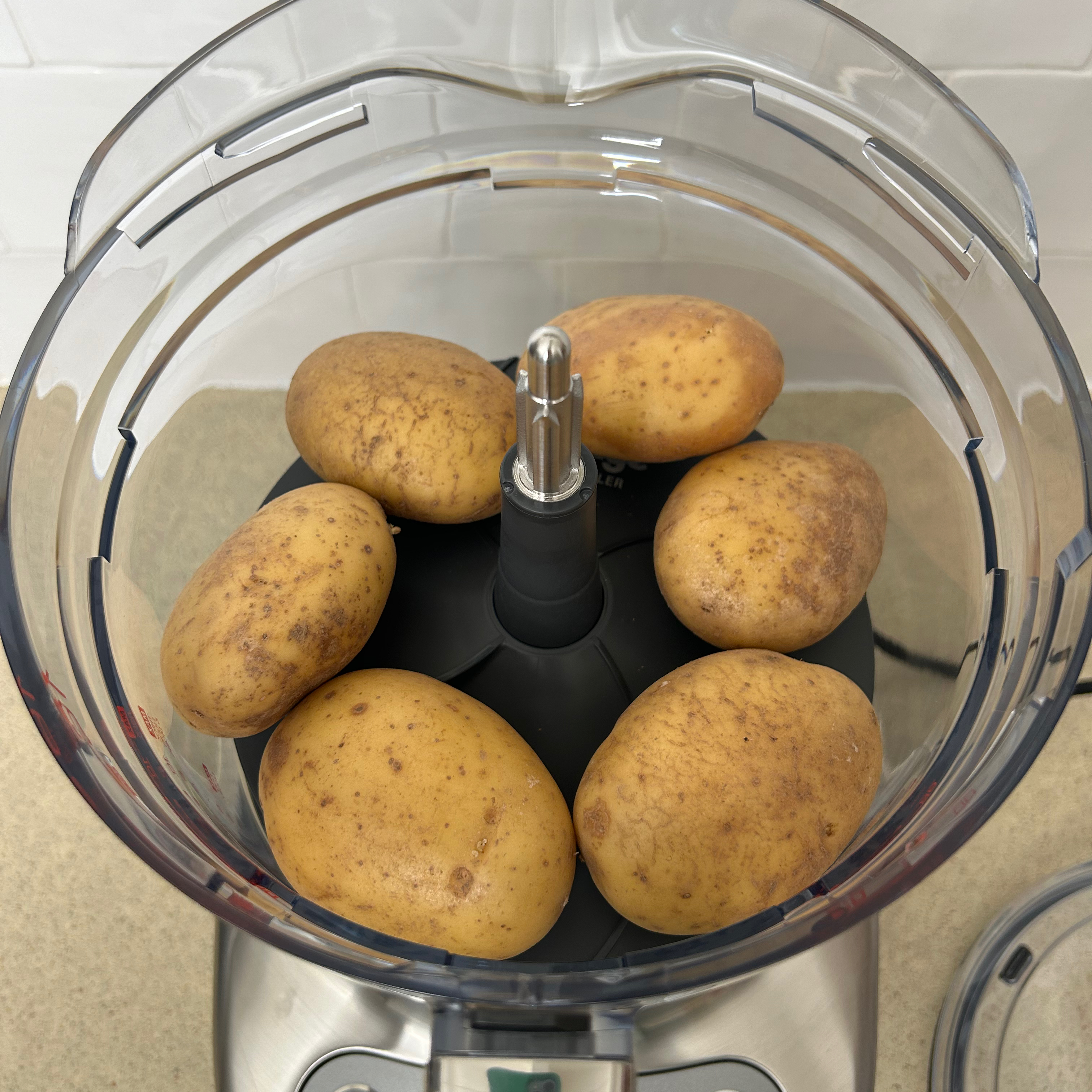
My potatoes were more like 7x4cm, and it was just pure luck that there were six in the bag that were roughly the same size. The manual advises that peeling is quick so I checked them after 20 seconds, 30 seconds and then stopped peeling after 40 seconds.
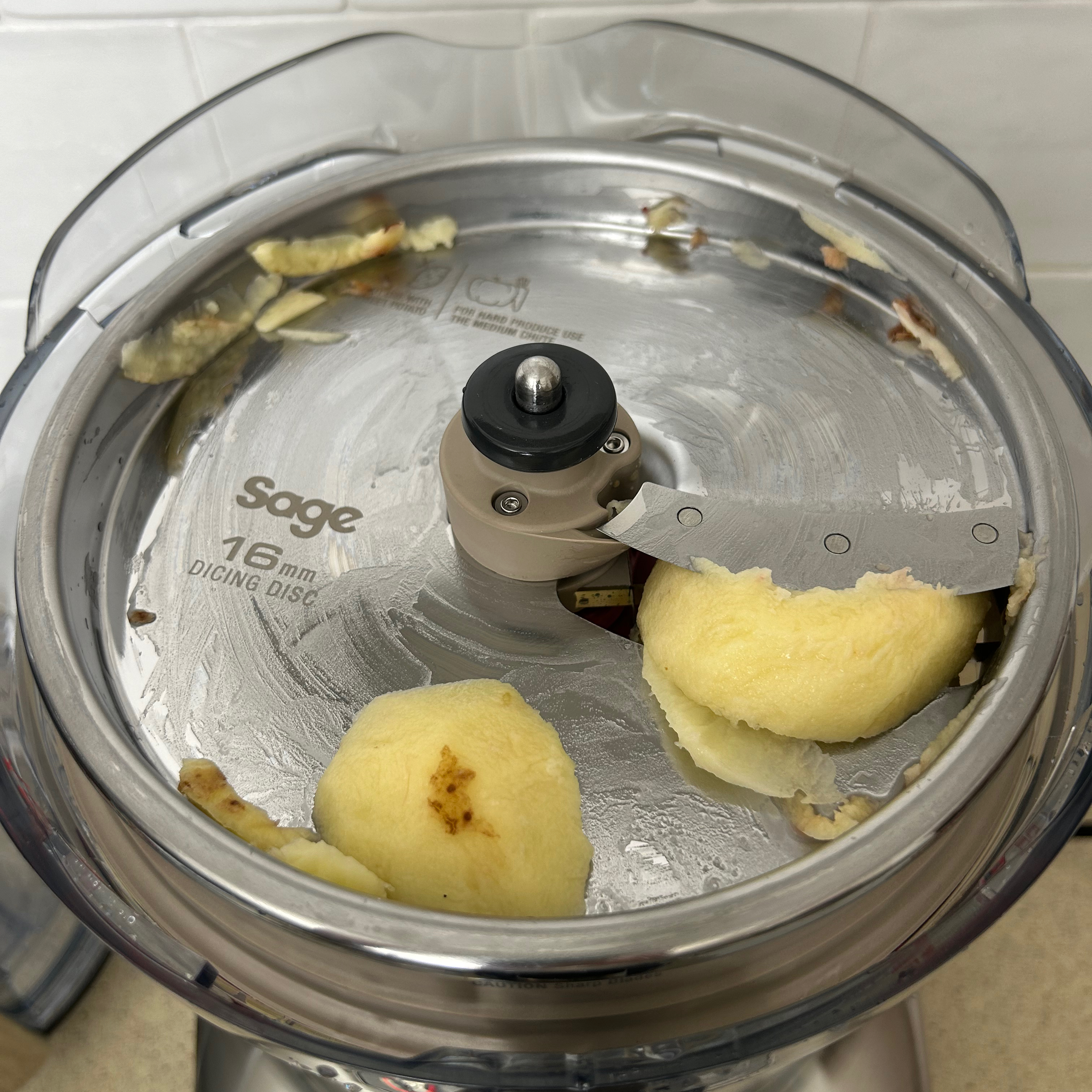
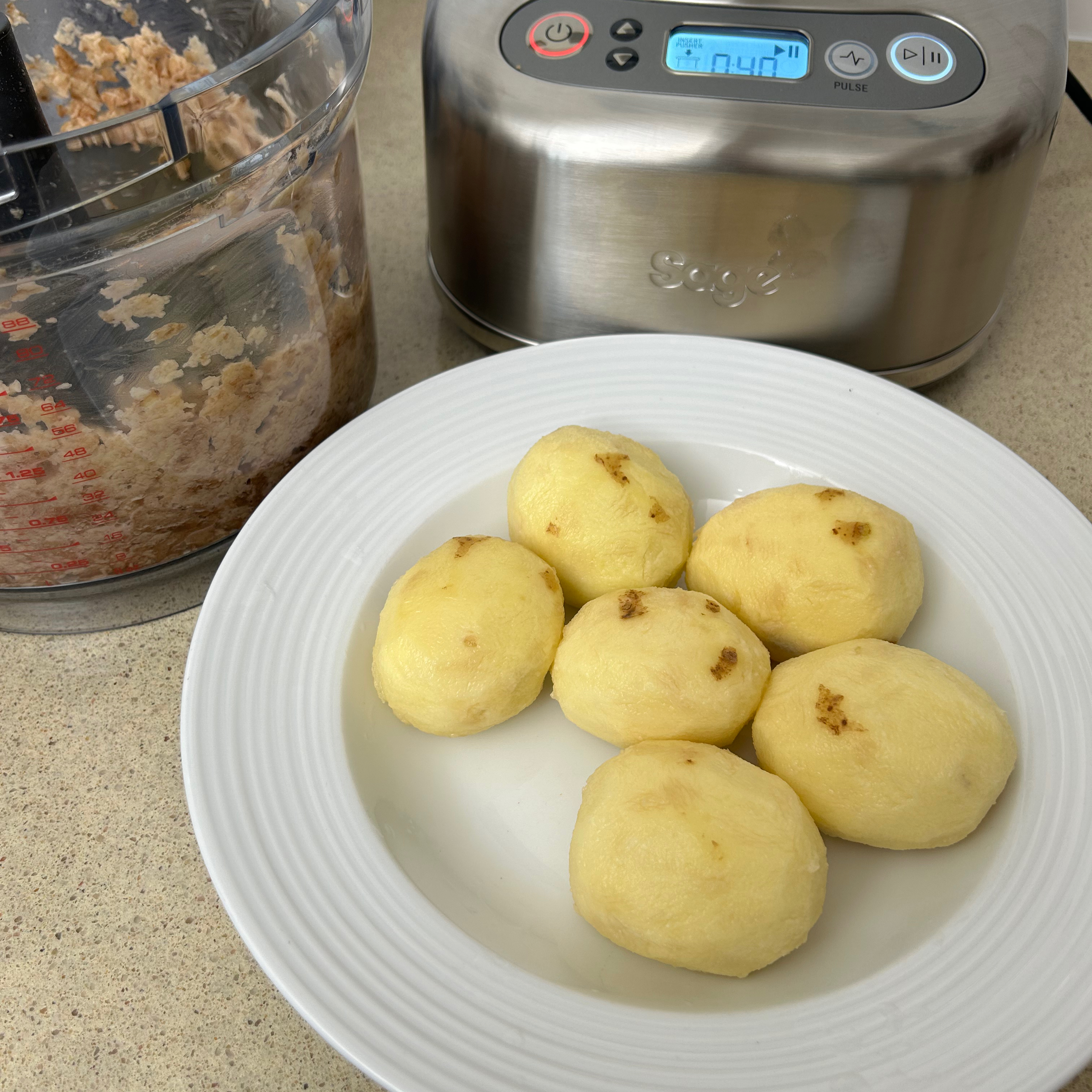
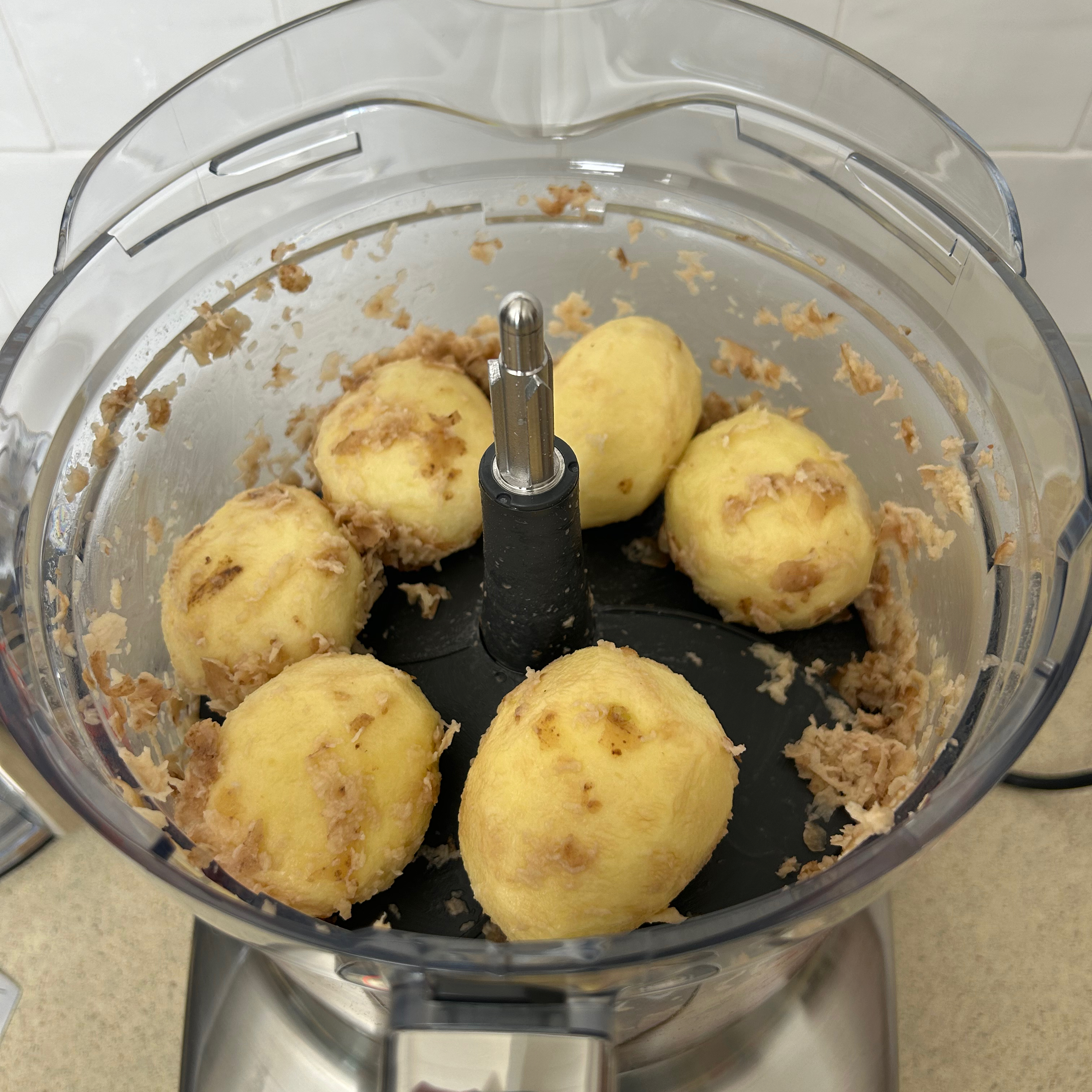
At this point they needed a quick rinse and although each potato had one or two small patches of skin that I had to remove, they were virtually completely peeled. It’s pretty effective, but I can’t help thinking that it’s rare that a bag of potatoes will contain mostly round evenly sized potatoes of the correct size.
Dicing discs
The assembly does at first look daunting, but I found it to be pretty intuitive. Plus, there are instructions on most of the parts that tell you which way up they go, which helps. Using the 16mm dice accessory, my five peeled potatoes were diced in around 20 seconds. They were a mixture of full size dice and smaller bits.
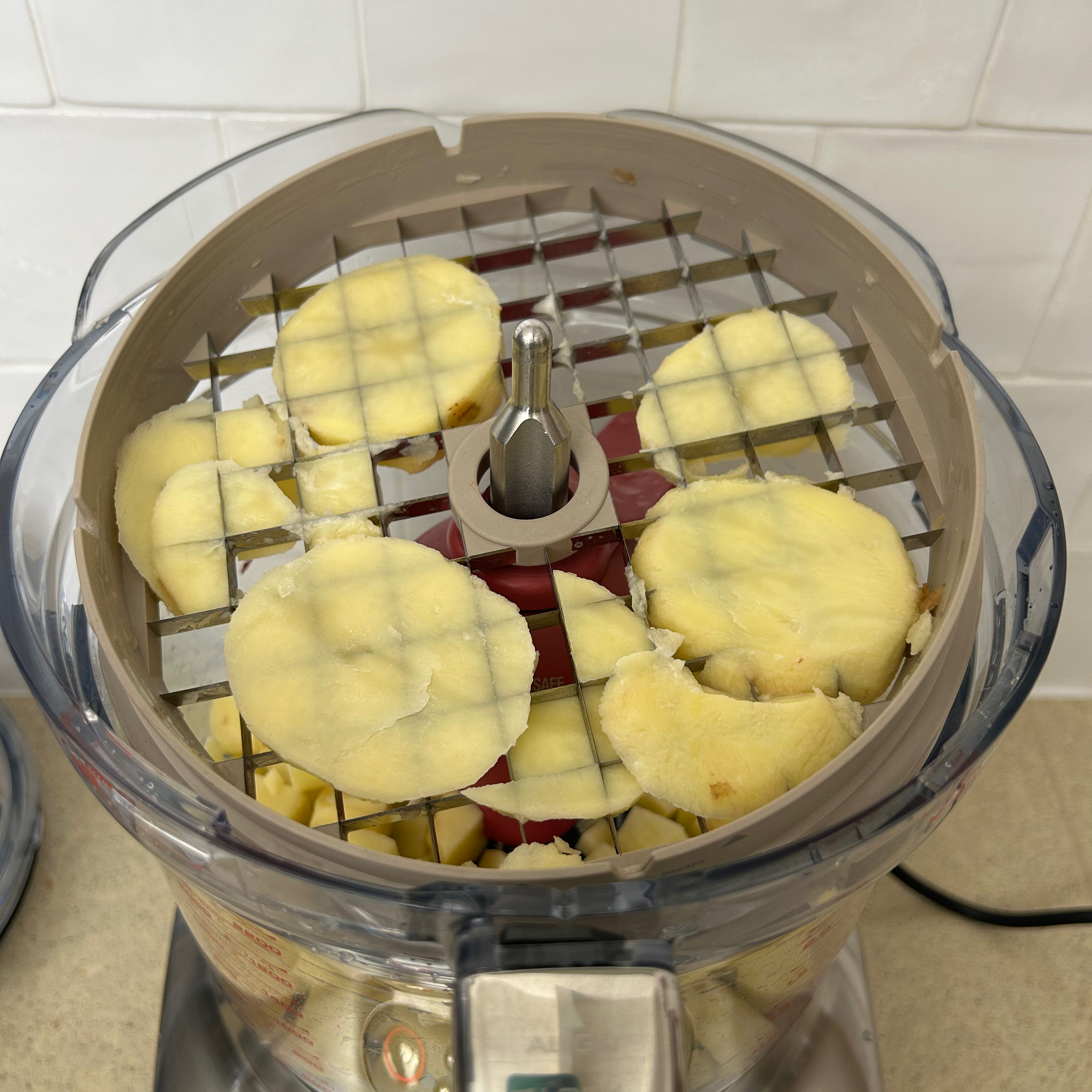
At first when I opened it I saw a lot of potato still stuck in the dicing disc and worried about how I would get it all out without losing a finger. Then I remembered they supply a genius tool for getting food out of the dicing disc. It attaches to the pusher from the lid and makes it possible to remove the stuck potato without too much effort.
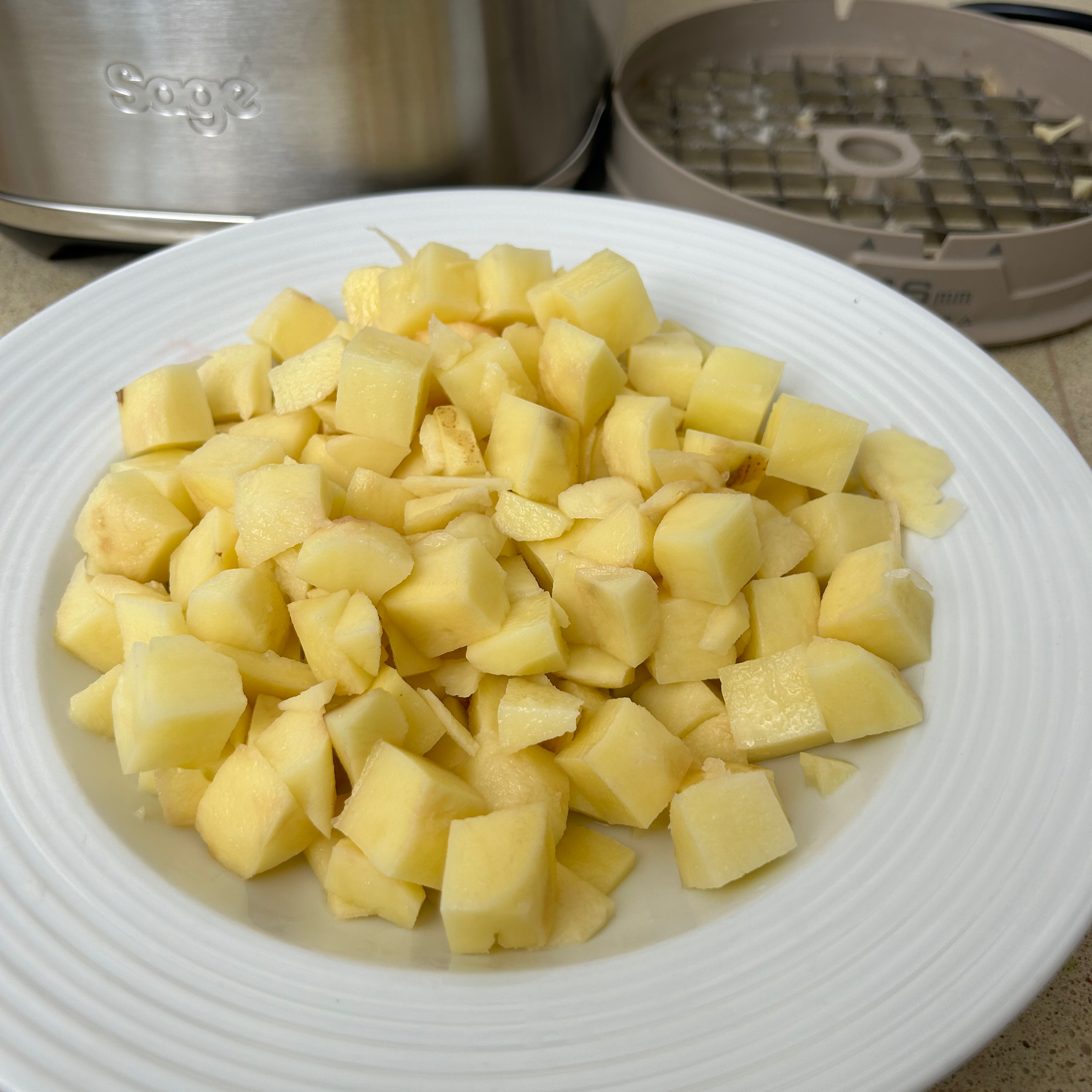
The 8mm disc seemed like a good size for dicing courgette to roast in the air fryer. Two courgettes were diced to perfection in just eight seconds. An impressive feat, although I still had to take the time to press out all the pieces stuck in the dicing disc. Which feels unnecessarily laborious after dicing just two courgettes. But I wouldn’t mind it much if I'd diced a bigger pile of veg.
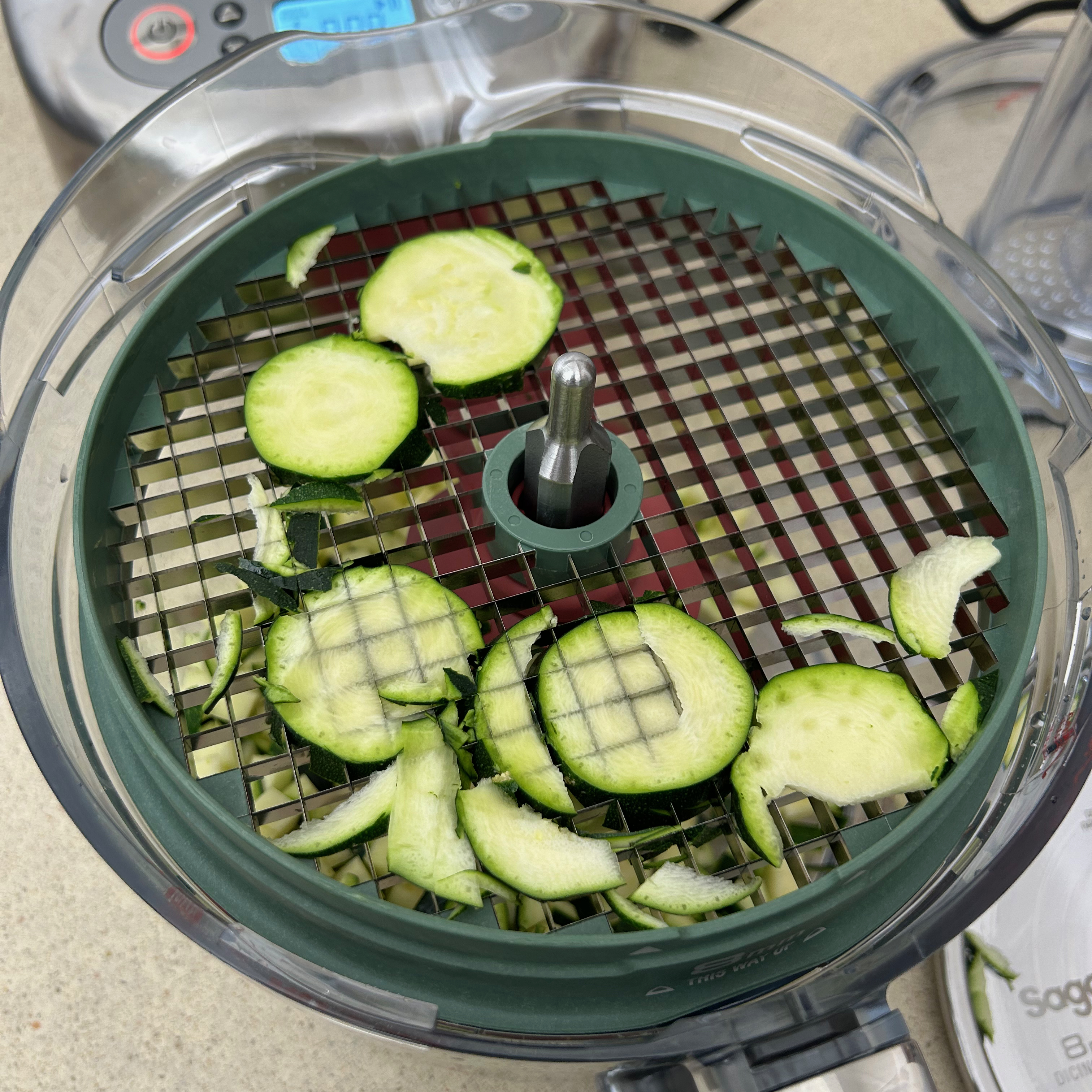
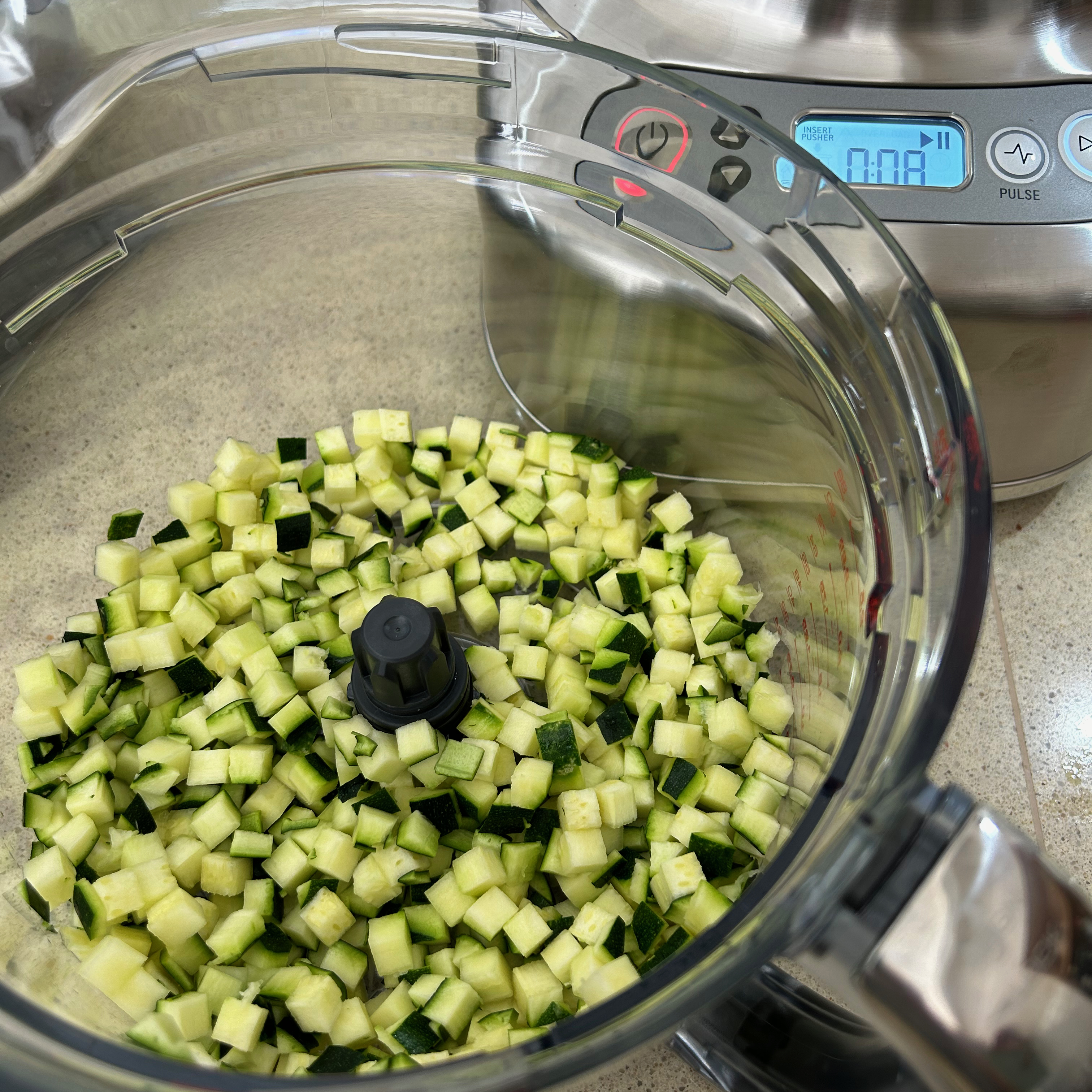
Reversible shredder
I frequently make homemade coleslaw and grating the carrot in a food processor certainly speeds up the job. I used the larger side of the reversible disc to grate two carrots that I’d topped and tailed. It grated both in an impressive five seconds.
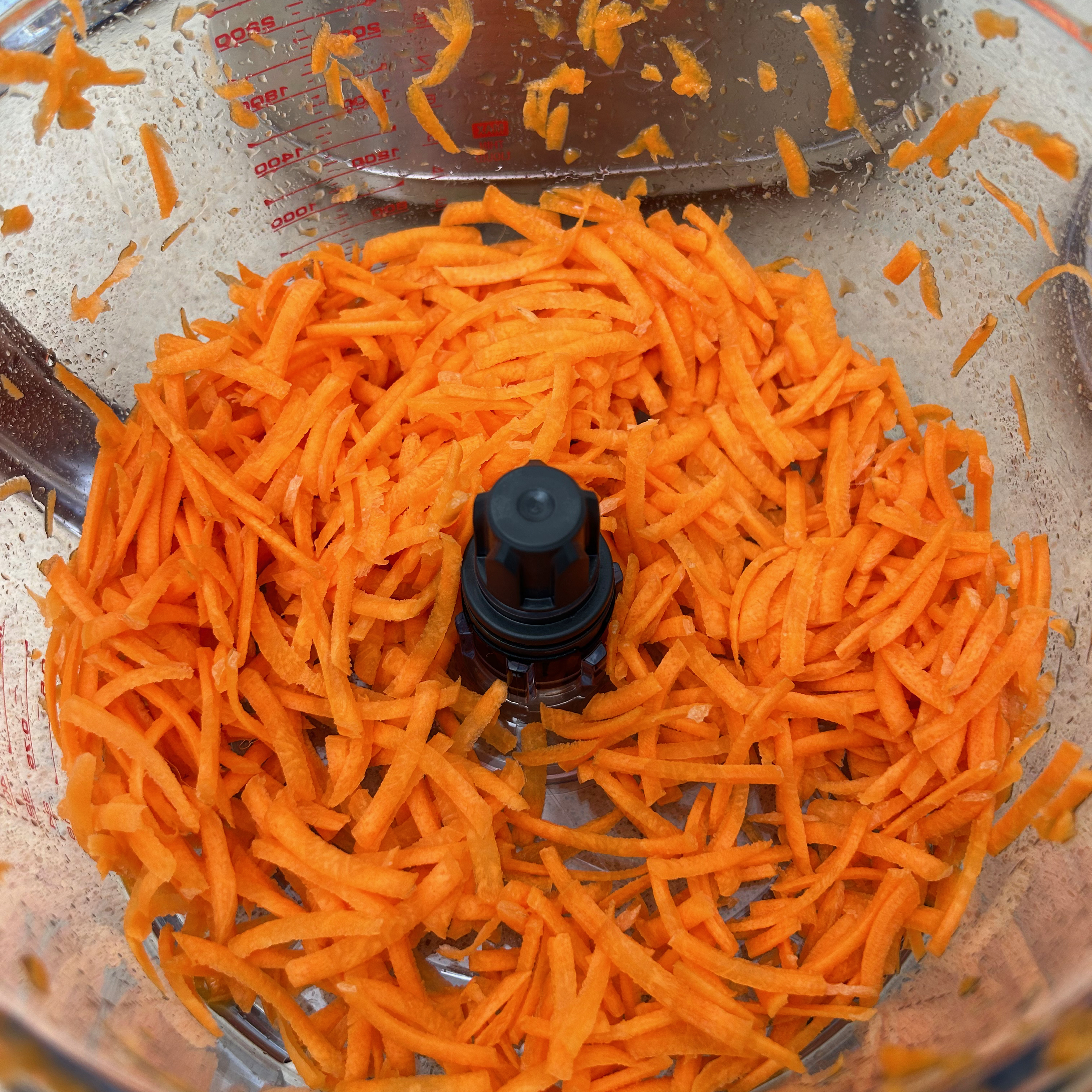
There was a very small piece of waste that I could totally live with, especially since I didn’t bother peeling the carrots. The rest was perfectly, evenly shredded.
I can’t review a grater without grating cheese, so I grated a 360g cheddar. I cut it into two big blocks that would each fit comfortably into the medium feed chute. And I used the smaller side of the grater disc.
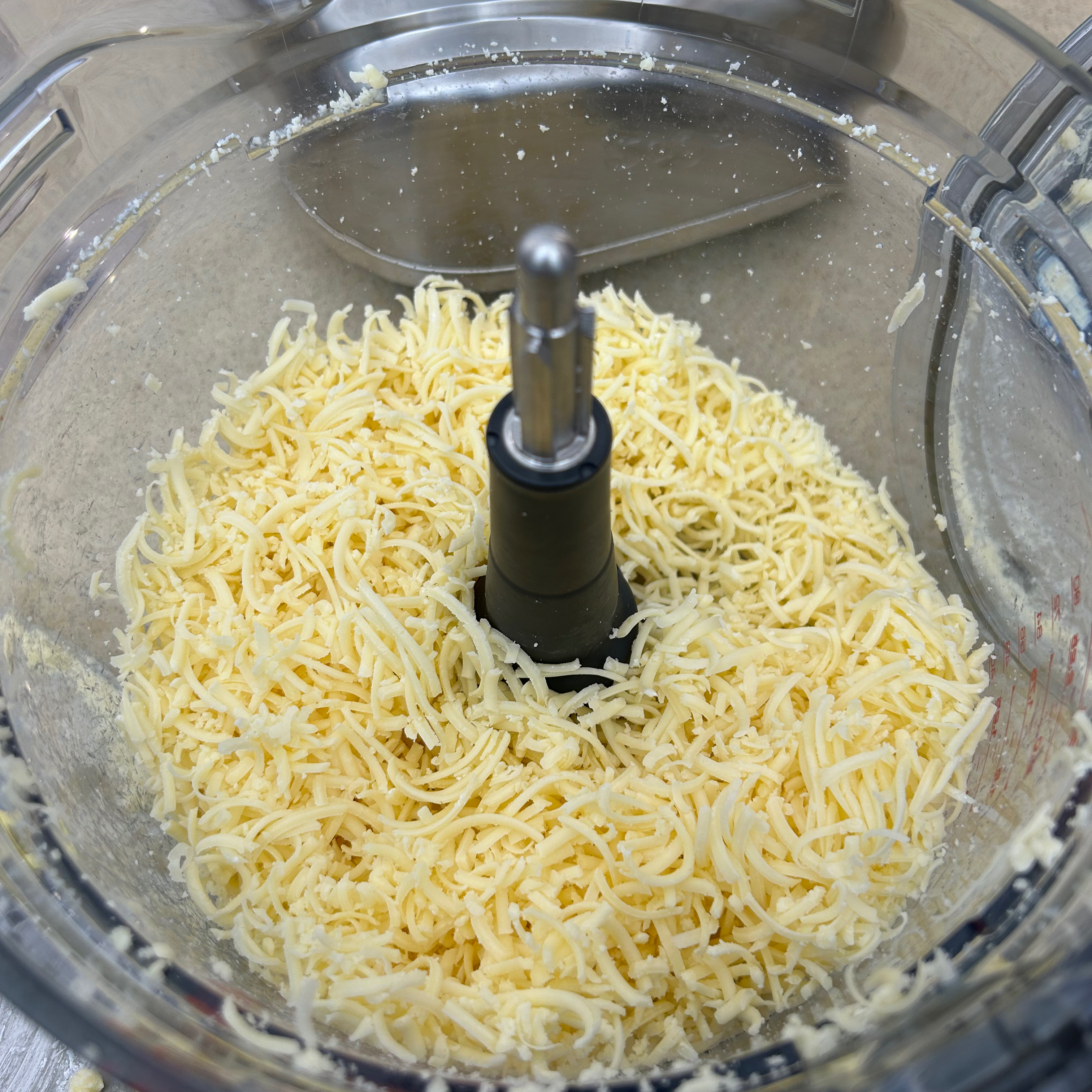
The cheese was grated in just 8 seconds. You get a bit of waste, because some smears onto and sticks to the disc and the lid, but it can be scraped off using the included spatula, and used for a cheese sauce or lasagne topping. And really it feels like a small price to pay for such a speedy, evenly grated pile of cheese.
Adjustable Slicer
To go with my grated carrot for the aforementioned coleslaw, I sliced half an onion using size 3 on the adjustable slicer. It was sliced in just 3 seconds. A small amount of waste sat on top of the disc but not much really. The onion was a tad thicker than I’d like for coleslaw, so I would probably reduce it to number two next time. I can’t fault it for speed though.
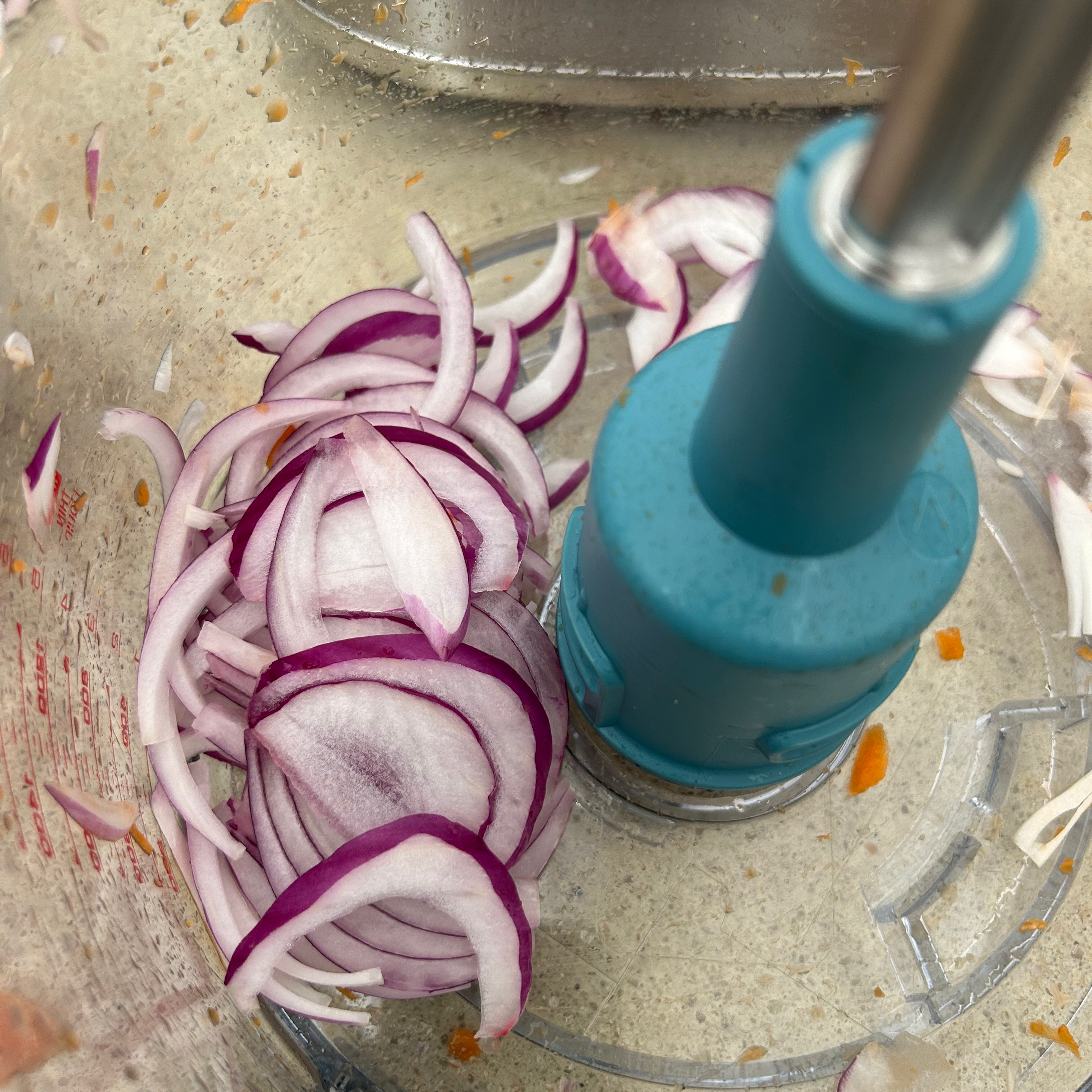
To slice carrots into discs, I adjusted the slicer to the largest possible slice size and then fed in five carrots one by one. And impressively the whole lot were sliced in under 10 seconds. They were pretty even, unless they hit the slicer at an angle, but overall, it’s a super swift way to slice through a lot of veg.
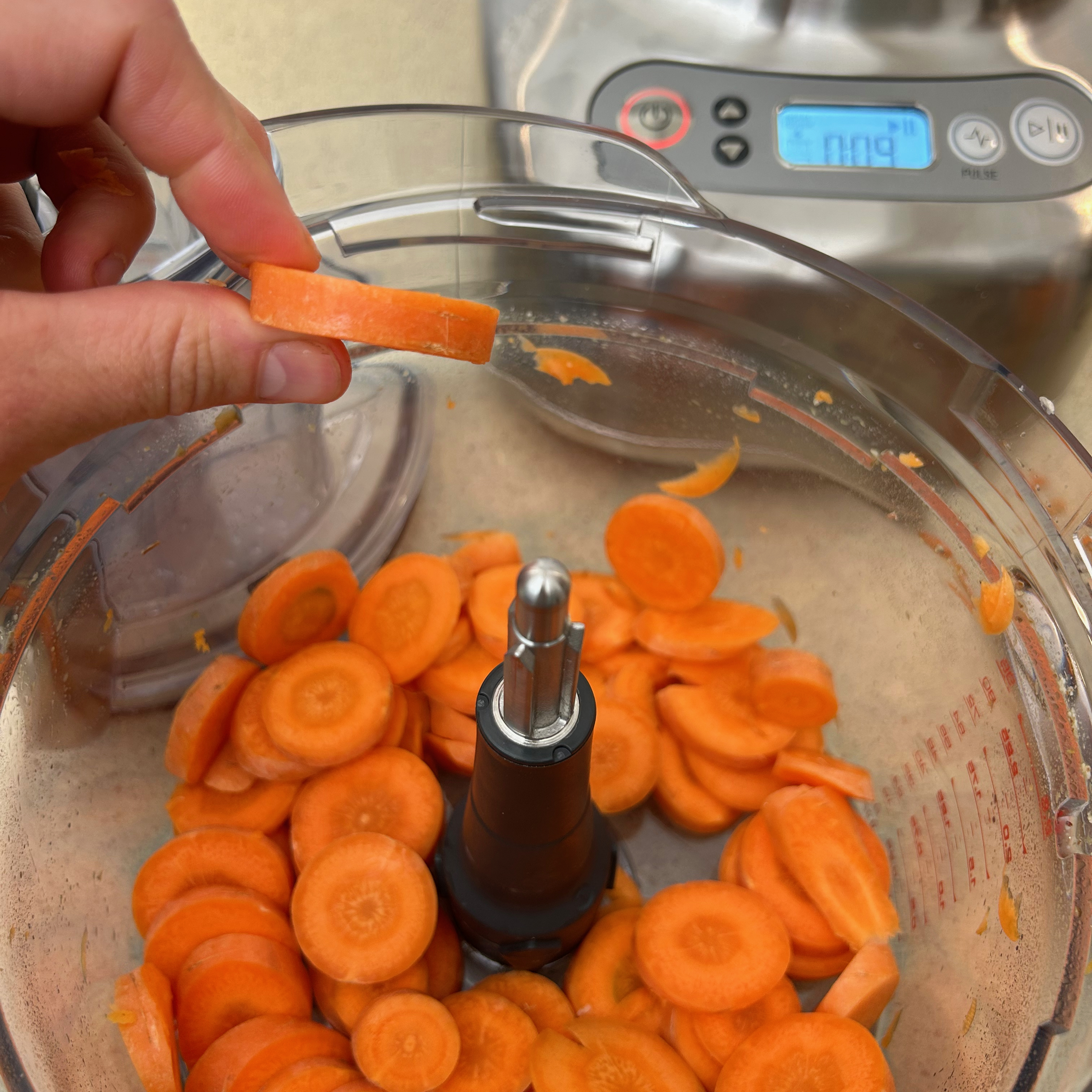
I used it again to slice up two whole peeled beetroots. This time I chose number five on the adjustable slice scale and it took just 5 seconds to get through both beetroot. Which saved me from getting red beetroot juice all over my hands and chopping board.
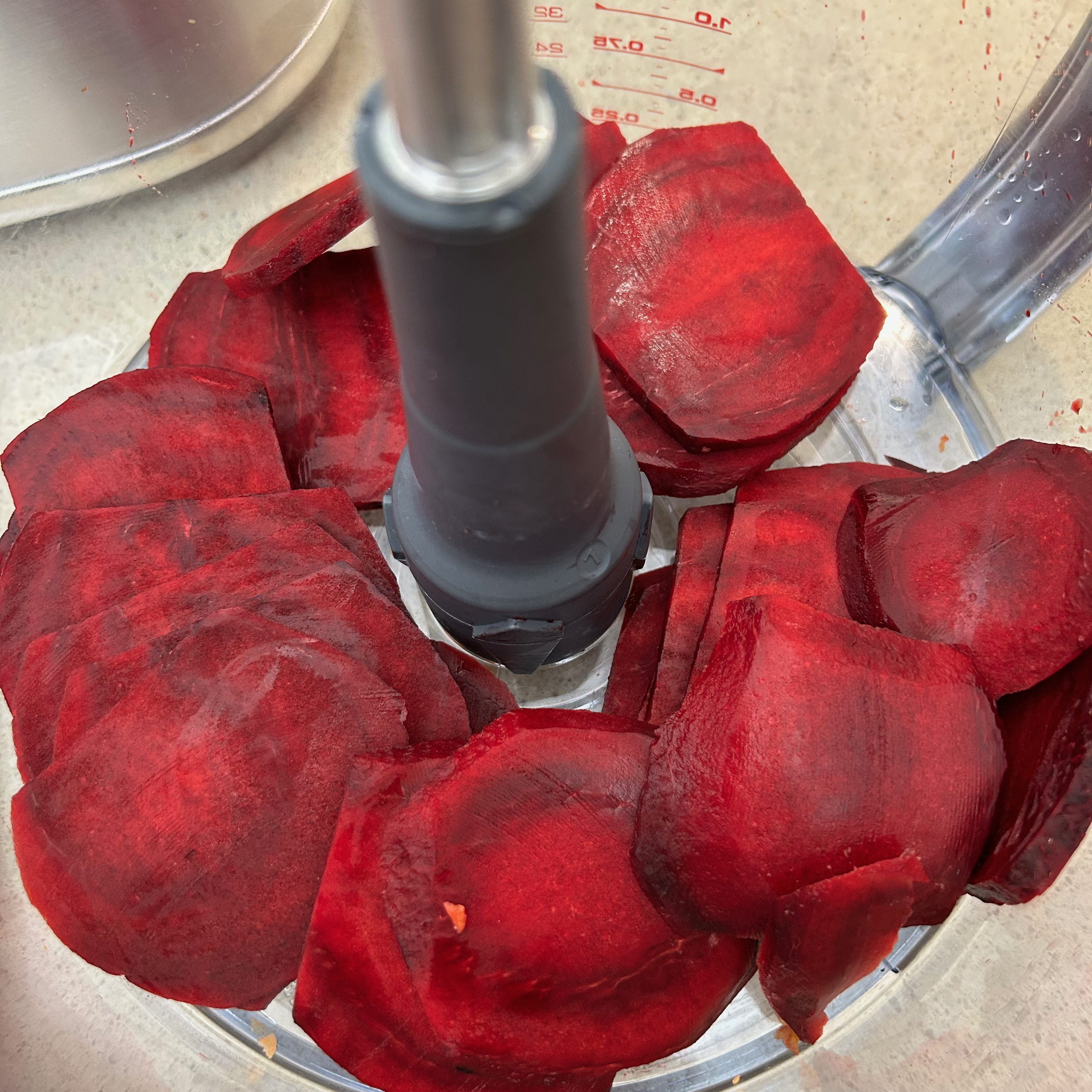
Quad blade
I cooked the sliced carrot and beetroot until softened, then added them back to the food processor to blend into a puree using the fierce looking quad blade. I had to stop and scrape the sides down a couple of times during the blend, to make sure everything was blended.
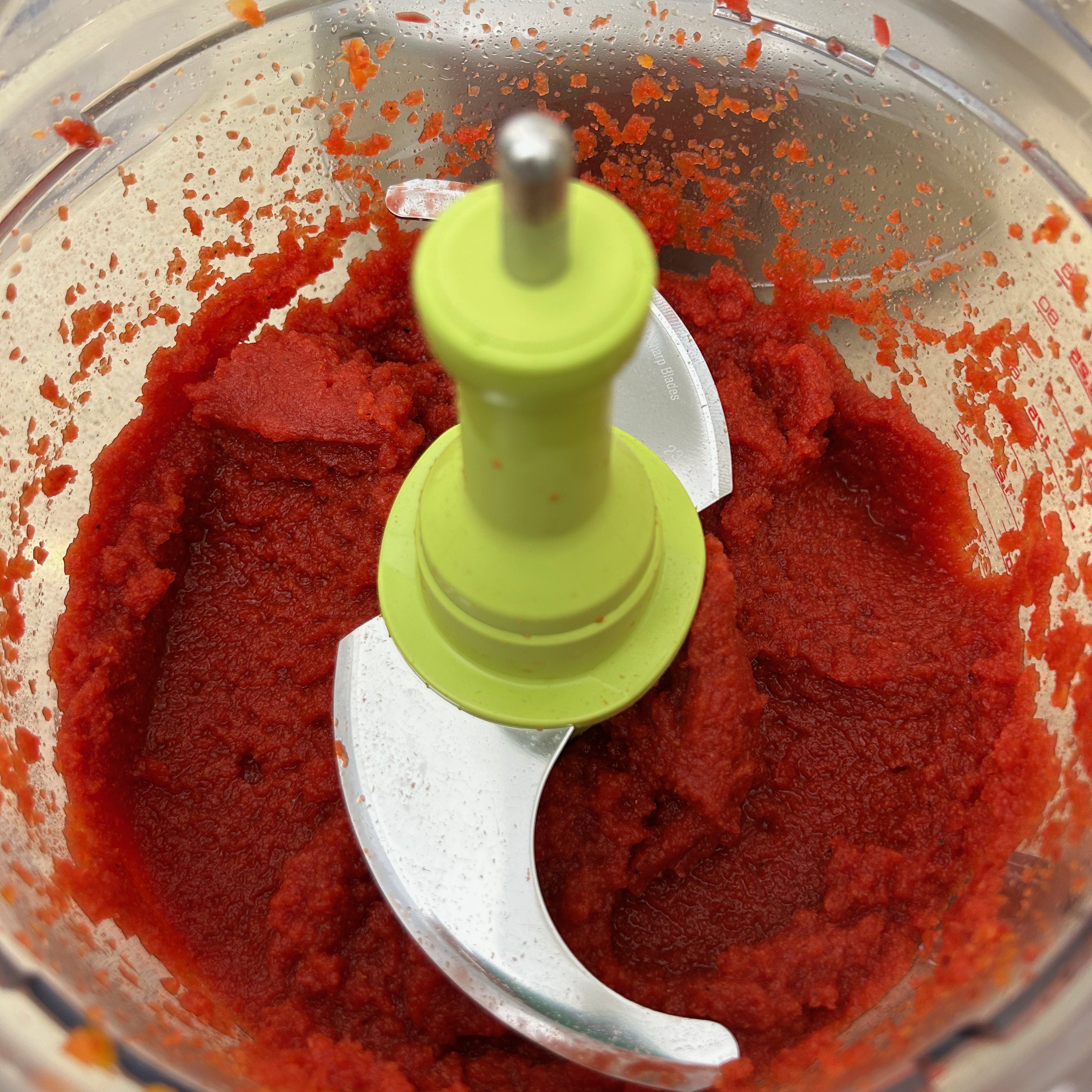
It only took one minute to thoroughly blend the carrot and beetroot into a smooth puree, perfect for baby food, or as the base for a dip or a soup.
I also used it to grind 500g diced beef into mince for burgers. The beef was no match for these blades though and it was finely minced in just 10 seconds.
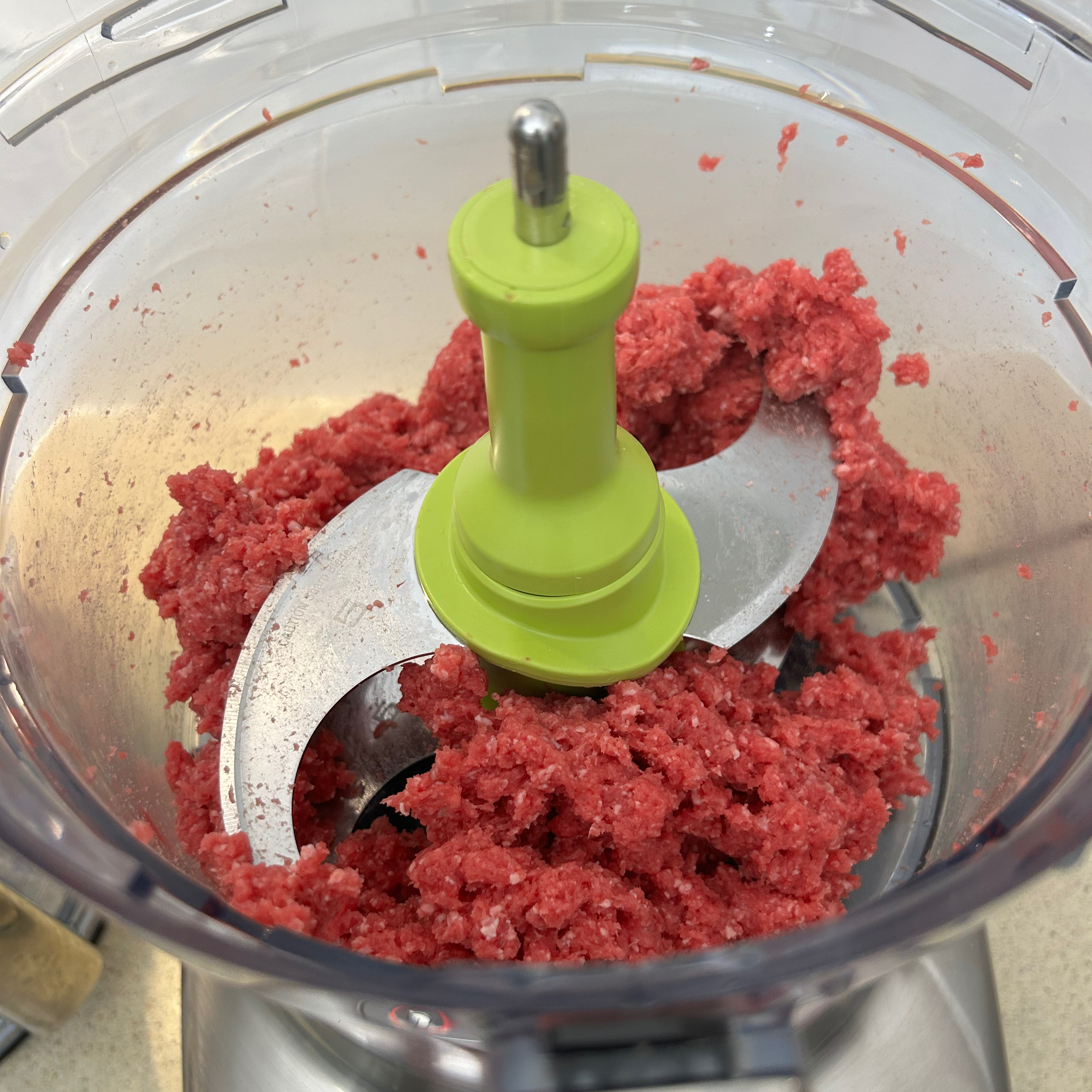
French Fries cutter
Given how many air fryers I review, I’m no stranger to cutting homemade chips, so I was particularly excited to try out this accessory. I fed in four unpeeled potatoes and as with all the other accessories, they went through in seconds.
But, I was less impressed with this disc. Firstly the chips were a curved shape. Secondly, they were very uneven in thickness. Some were wafer thin, while the thickest were your typical skinny fry thickness. And lastly, the food processor was not stable on the worktop when using this disc.
It would be impossible to cook such a variety of thicknesses evenly in an air fryer, so I'd rather go back to cutting them by hand.
Dough blade
To try out the dough blade, I added all the ingredients for a homemade loaf of bread. To begin with I pulsed the mixture, then after about 20 pulses I left it running continuously for 10 seconds, which was all it took to thoroughly combine the flour, water, and yeast.
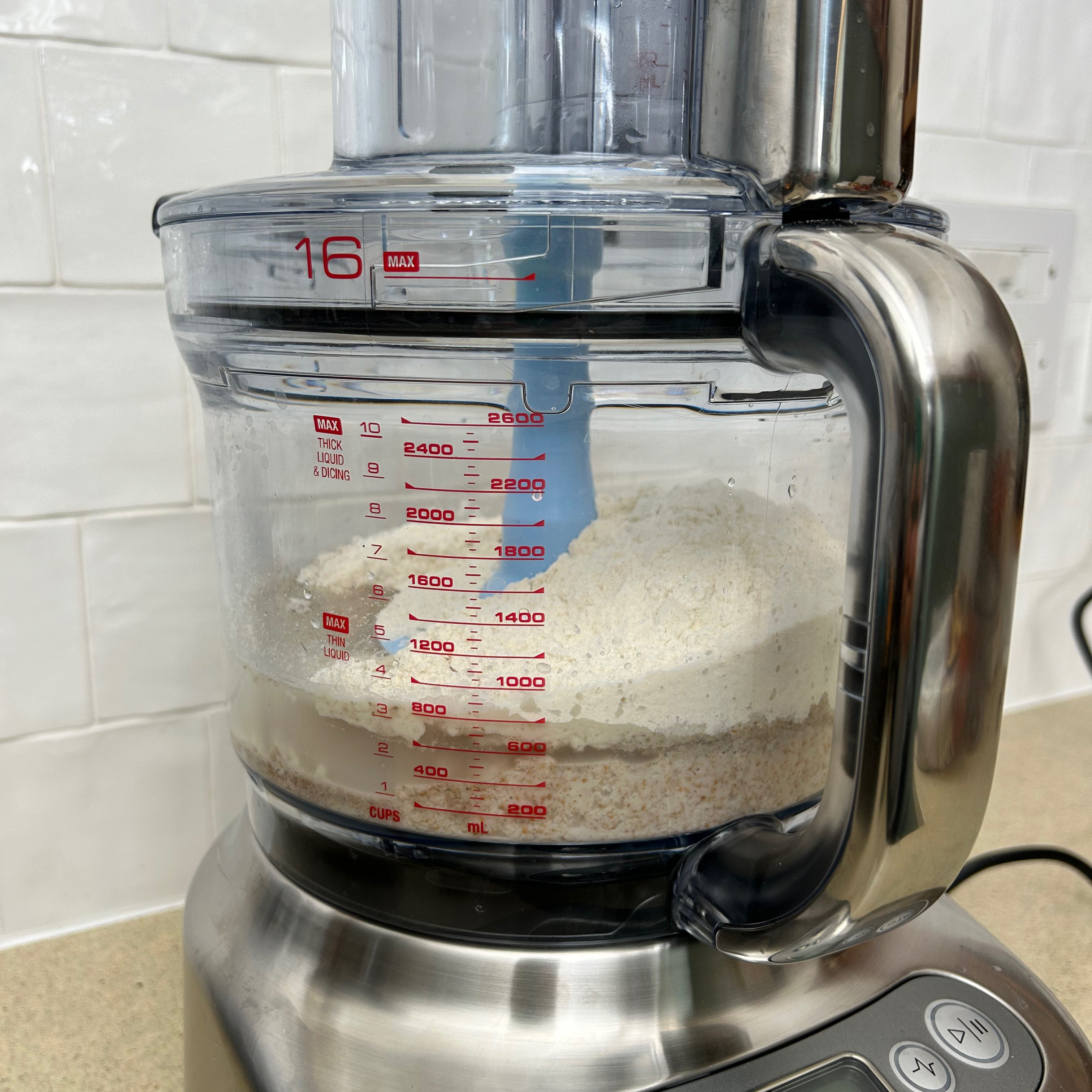
After adding a pinch of salt I switched it on and let it knead the dough for one minute. I would have left it kneading for longer but it was rocking and moving around on the worktop so much that I didn’t feel happy to continue kneading.
I should note that the maximum flour quantity listed in the manual for the dough blade is 750g, but my loaf was only 450g flour, so I expected it to cope better than it did.
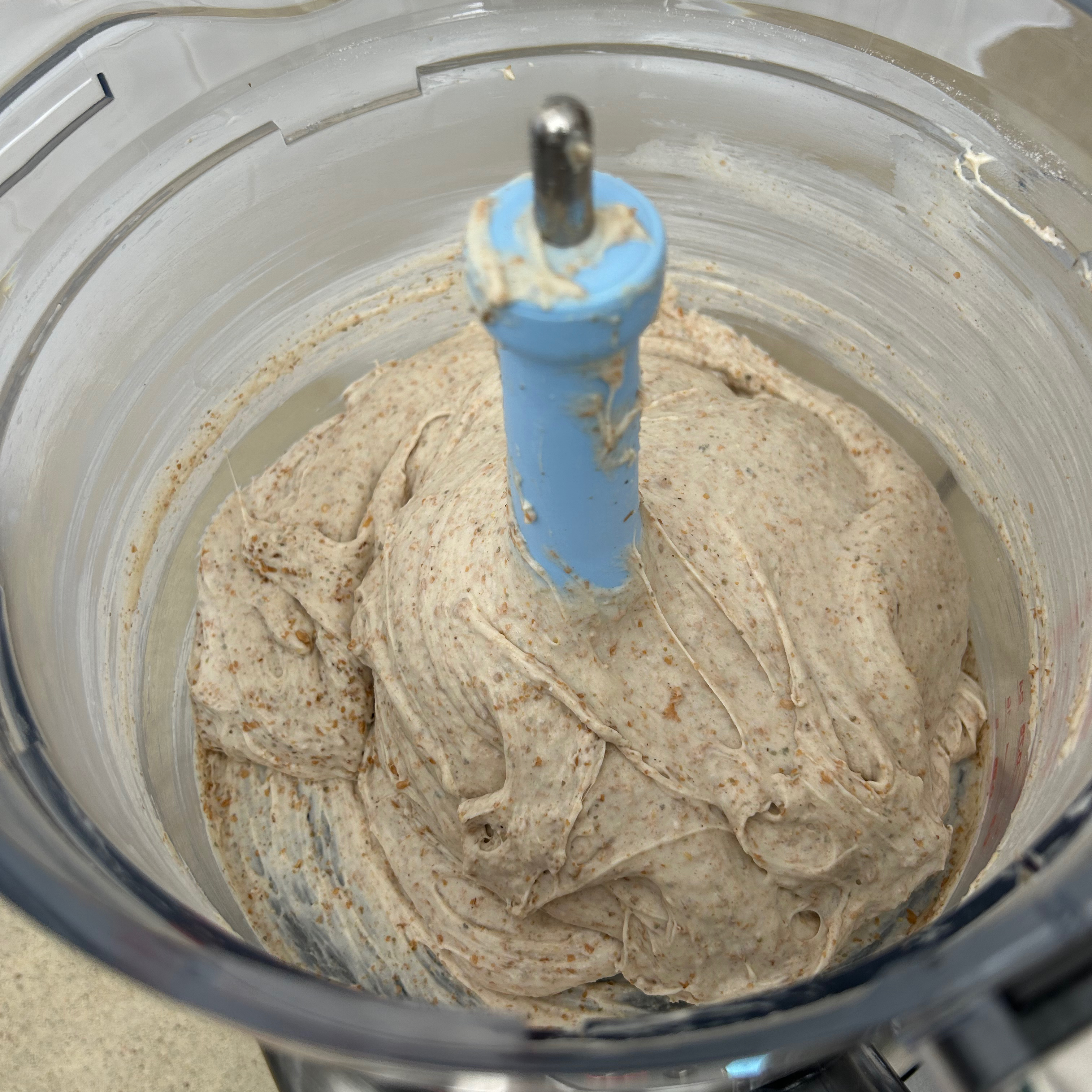
Mini processing blade
I used this smaller blade and bowl to chop a mixed nut selection that included pecans, brazil nuts, almonds, and hazelnuts. To make sure they didn’t immediately turn to powder, I used the pulse button. It took around 20 pulses to chop the nuts.
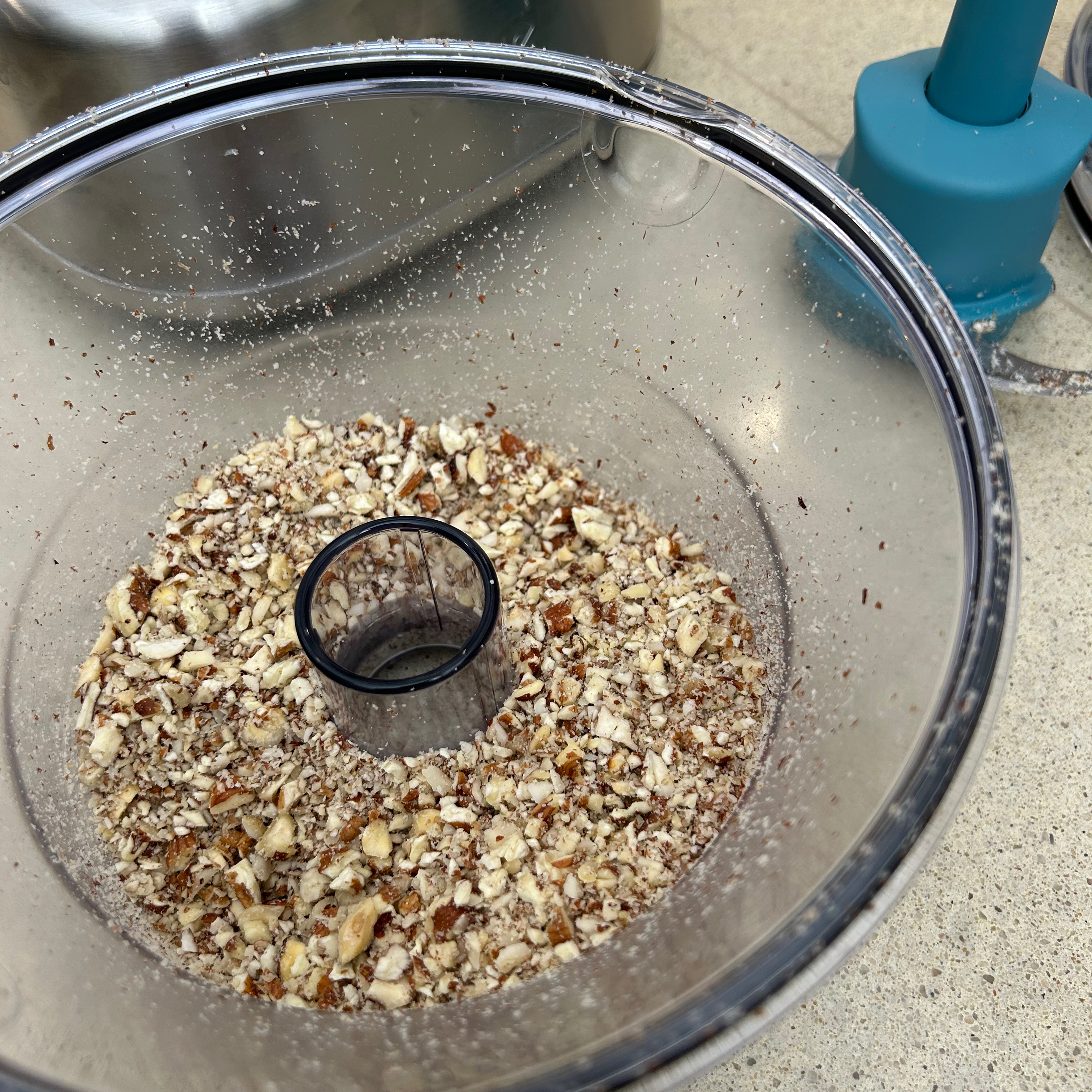
They weren’t evenly chopped, it was a mixture of some powder, smaller and larger chunks. But that’s unsurprising given that there were several types of nut in the bowl. Plus, I’d rather they were slightly unevenly chopped than completely ground to a powder.
Next I chopped 200g whole apricots, these are sticky and can be difficult to chop. But they were evenly chopped in just 20 seconds.
The noise level is variable, grinding beef maxed out my noise meter at 95dB, while dicing courgette was just 80dB. Overall it felt quieter than an average blender, with most of the noise coming from whatever you’re processing, rather than the motor.
Cleaning the Sage Paradice 16
There’s no getting around it, the cleaning is the biggest downside to a food processor. And over my years of kitchen appliance reviews I’ve cut myself many times cleaning food processor accessories, so I’m pretty careful these days.
If cleaned straight after use, most of the discs and accessories will clean up quickly with a rinse under the hot tap. But if you’d rather keep your fingers away from the blades, virtually all the accessories can go in the dishwasher.
The base does get marked easily with fingerprints, so needs a wipe with a microfibre cloth after every use, to keep it nice and shiny.
How does this compare to other food processors?
If you want a more budget friendly alternative and you're happy to sacrifice the bulk of the accessories. The Ninja BN650 Food Processor with Auto-IQ (available for £99.99 from Ninja) is the model that’s currently on the top of our list of top-rated food processors. For under £100 it offers slicing and grating in addition to its chopping blade and dough blade.
Another favourite is the Cuisinart Easy Prep Pro, its compact size will suit smaller kitchens. It’s a go-to food processor for daily grating and slicing tasks. Plus, it’s small and lightweight enough to lift in and out of a cupboard when not in use.
Should you buy the Sage Paradice 16?
If you’ve read down to this point then it’s fair to assume you’ve not been put off by the price. So putting that to one side, the only other big downside is the volume of stuff to store. But again, I’ve made that clear, so you’ve probably got plenty of storage space if you’ve made it this far.
Personally I think the weakest accessories are the peeler - purely based on the requirement for evenly sized round potatoes. And also the french fry disc, which didn’t do what I wanted it to do. The dough blade worked well but you may need to hold the processor steady.
That being said, assuming you’ve got the budget, the storage space, and the need, then this is a great investment. You’ll get an incredibly capable and well made food processor and the majority of the accessories excel at what they do.
It’s great quality and extremely easy to use. I’d say it’s best suited to processing larger volumes, so in a busy household it’ll really help ease the pressure when it comes to meal prep.
About this review, and the reviewer
After completing a Home Economics degree, Helen went on to work for the Good Housekeeping Institute and has been reviewing home appliances ever since. She lives in a small village in Buckinghamshire in the UK, where she reviews all sorts of home and garden appliances using her wealth of experience.
Helen received the Sage Paradice 16 on loan from UK Juicers and used it for a week in her own kitchen. She made it her mission to try out each and every accessory included with the food processor, and she wasn’t disappointed.







